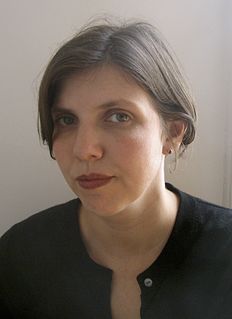A Quote by Michael Dirda
This Is Not a Novel memorializes the treasures and detritus of one man's singularly cultured mind. (...) If you don't know Writer's work at all, try This Is Not a Novel. There may be some doubt about exactly what kind of book it is, but not that it's altogether wonderful.
Related Quotes
It's very bad to write a novel by act of will. I can do a book of nonfiction work that way - just sign the contract and do the book because, provided the topic has some meaning for me, I know I can do it. But a novel is different. A novel is more like falling in love. You don't say, 'I'm going to fall in love next Tuesday, I'm going to begin my novel.' The novel has to come to you. It has to feel just like love.
The more readings a novel has, even contradictory, the better. In journalism, you talk about what you know; you have provided yourself with records, you have gathered information, you have performed interviews. In a novel, you talk about what you don't know, because the novel comes from the unconscious. They are very different relationships with words and with the world. In journalism, you talk about trees; in the novel, you try to talk about the forest.
The average detective story is probably no worse than the average novel, but you never see the average novel. It doesn't get published. The average -- or only slightly above average -- detective story does.... Whereas the good novel is not at all the same kind of book as the bad novel. It is about entirely different things. But the good detective story and the bad detective story are about exactly the same things, and they are about them in very much the same way.
The age of the book is not over. No way... But maybe the age of some books is over. People say to me sometimes 'Steve, are you ever going to write a straight novel, a serious novel' and by that they mean a novel about college professors who are having impotence problems or something like that. And I have to say those things just don't interest me. Why? I don't know. But it took me about twenty years to get over that question, and not be kind of ashamed about what I do, of the books I write.
Before I begin a novel I have a strong sense of at least one central character and how the story begins, and a more vague sense of where things may wind up, but at some point, if the novel is any good at all, the story and characters take on lives of their own and take over the book, and the writer has to be open to that.
Most really good fiction is compelled into being. It comes from a kind of uncalculated innocence. You need not have your ending in mind before you commence. Indeed, you need not be certain of exactly what's going to transpire on page 2. If you know the whole story in advance, your novel is probably dead before you begin it. Give it some room to breathe, to change direction, to surprise you. Writing a novel is not so much a project as a journey, a voyage, an adventure.
I've no objection to the term 'graphic novel,' as long as what it is talking about is actually some sort of graphic work that could conceivably be described as a novel. My main objection to the term is that usually it means a collection of six issues of Spider-Man, or something that does not have the structure or any of the qualities of a novel, but is perhaps roughly the same size.



































